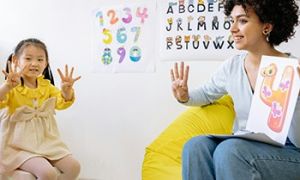Shyness is a feeling and a behaviour towards others. It is a personality trait, an introvert behaviour. Shyness can also be a genetic influence just like any other physical trait. Sometimes even babies are shy. We can see some babies hide their face from strangers. It can also be a learned behaviour which onsets later because of experiences. At times, shyness just prevails in a new situation and gets away ones adjusted.
Severity of Shyness
The behaviour and the characteristics of the shy child is wrongly perceived in the society. The way they carry themselves may portray them differently in the eyes of people. Most of their talents are hidden or remain unidentified. Opportunities are not reached to them because of their withdrawal tendencies.
Usually shyness is a part of some human behaviour i.e., being timid, uncomfortable in social situations and such like that. However, in some cases, shyness in extremity like obstructing from doing things we want to require professional help. Certain signs to be identified are:
- Temper tantrums in any social situation
- Behaving more like a baby that is, inappropriate to the age, like thumb sucking in the age of 6, babbling or trying to get held like babies etc, during discomfort or in an uncomfortable situation.
- Self-isolation at all times.
Overt behaviours like these certainly require professional help.
Characteristics of a Shy Child
- Social Anxiety - The presence of people brings in anxiety. A strong irrational fear exists in social situation.
- Pessimism - Many shy people are pessimistic. Their shyness emerges from the negative thinking sometimes about themselves or others or the situation.
- Withdrawal - These children do not participate much in the company. They prefer to be unnoticed.
- Fear - There is a constant background of fear of what happened, what is happening and what is going to happen.
- Low level self-confidence - the underlying quality is fear of failure, embarrassment, because of high consciousness about other things. It is also related to inferiority complex.
- Quiet - These kids do not talk much or interact with the peer group much. They remain quiet most often. However not all those who are quiet are shy.
- Loneliness - They prefer to be alone in their own company I.e., their comfort zone is when they are on their own, the presence of people around may bring in discomfort, except for the people whom the child is always with. However, they will have an underlying thought for the need of companionship which is being resisted by fear of anxiety.
Physical Gestures of a Shy Child
Blush, feels speechless, breathless, Pit feeling in the stomach, throat dryness, sweating when in social groups. During conversation shy kids will refrain from eye contact.
Positive Qualities In Being Shy
There are cultural differences in viewing this aspect of shyness. Positive views to look at are:
- Shy kids are good listeners as they do not speak much.
- They have control over their behaviour in public.
- They remain quiet and calm.
Supportive Measures
- Approach the child like a friend and trace out the underlying problems and work on them.
- A positive and confident approach results the same. It is important to boost the morale of the kid every now and then with positive reinforcement. Help them identify their strength and interests and be a support to exhibit the same. The success should be motivated for more trials. In case of any negative results or failure in accomplishments, refrain from being angry or upset as this might have a negative impact and make them more submissive.
- Talk to your child about their successes and help them communicate their fears, thoughts etc. Often talking helps to deal with lots of problems.
- Build up situations and enact it like a game or play which teaches the children to deal with inner conflicts in a fun way which them gives an idea when it comes to reality. Slowly start involving more kids in the play, initially in your presence, because they require frequent motivation.
- It is important to set a good example. Try to be a role model and an inspiration to the children by being a confident, outgoing person. It is a foremost importance to build in the feeling of security that they are safe in the world.
- Encourage them to socialize often by taking then to functions, parties where there involves a gathering etc. Mingling with more and more of people may slowly help them in coming out of shyness. Induce practice of social skills like assertiveness, friendliness, confidence.
- Help them face everyday experiences with enjoyment and ease. Earlier Mental preparedness or explaining/talking about the forth coming events, location, person or situation may help.
- Early intervention methods that expose shy children in social interaction like team sporting decreases anxiety and increases self-confidence.
Although considered to be a personality trait, shyness however is a state of mind and can be overcome if handled well at an early age itself with complete patience and encouragement from our side. Self-confidence should be replaced with shyness.
References
http://en.wikipedia.org/wiki/Shyness
http://kidshealth.org/kid/feeling/thought/shy.html
http://www.mychildhealth.net/how-to-help-children-overcome-shyness.html


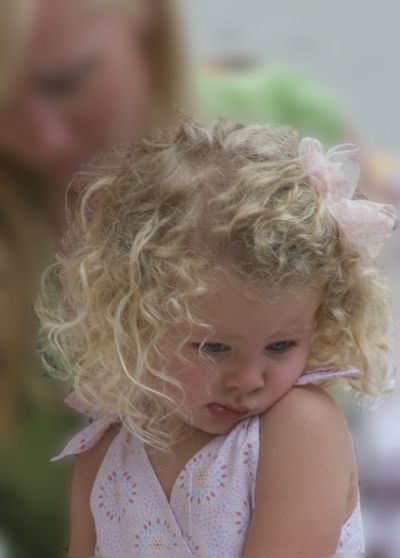




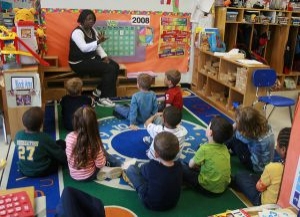 Working as a childcare professional can be a challenge especially when dealing with behavioural problems which may arise. The techniques we use when dealing with
Working as a childcare professional can be a challenge especially when dealing with behavioural problems which may arise. The techniques we use when dealing with There are different types of behaviour that children can display and sometimes it can be hard to manage, especially if a child is having behavioural
There are different types of behaviour that children can display and sometimes it can be hard to manage, especially if a child is having behavioural As a parent, your behavioural expectations of your child can be higher than what is actually developmentally appropriate for your child's age.
As a parent, your behavioural expectations of your child can be higher than what is actually developmentally appropriate for your child's age.
 As Educators, there will be many instances where you will need to write about a child's behaviour. For a behaviour management plan, assessments, half-yearly or
As Educators, there will be many instances where you will need to write about a child's behaviour. For a behaviour management plan, assessments, half-yearly or As Educators when communicating with Parents (through verbal or non-verbal communication), there will be times where we need to discuss issues or concerns that may
As Educators when communicating with Parents (through verbal or non-verbal communication), there will be times where we need to discuss issues or concerns that may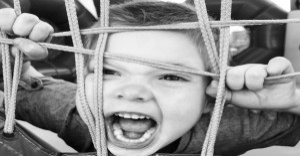 Challenging Behaviour is when a child does something that hurts themselves and/or other people.
Challenging Behaviour is when a child does something that hurts themselves and/or other people.
 As part of your child's development it is normal for your child to have anxiety and fears. A baby commonly shows a fearful sign to
As part of your child's development it is normal for your child to have anxiety and fears. A baby commonly shows a fearful sign to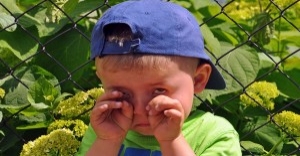 It's always difficult to bring up behavioural issues with parents, it can be nerve wrecking to tell a parent that their child misbehaves but that
It's always difficult to bring up behavioural issues with parents, it can be nerve wrecking to tell a parent that their child misbehaves but that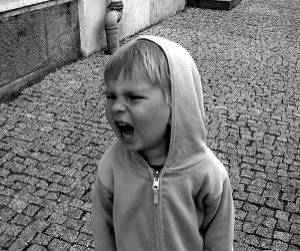 All children deal with anger on a daily basis. Thinking about it as a child, there is a lot to be angry about. Elder people
All children deal with anger on a daily basis. Thinking about it as a child, there is a lot to be angry about. Elder people It is important to understand that your child behaviour problems could not just be from attention seeking. There are many factors to take into consideration
It is important to understand that your child behaviour problems could not just be from attention seeking. There are many factors to take into consideration
